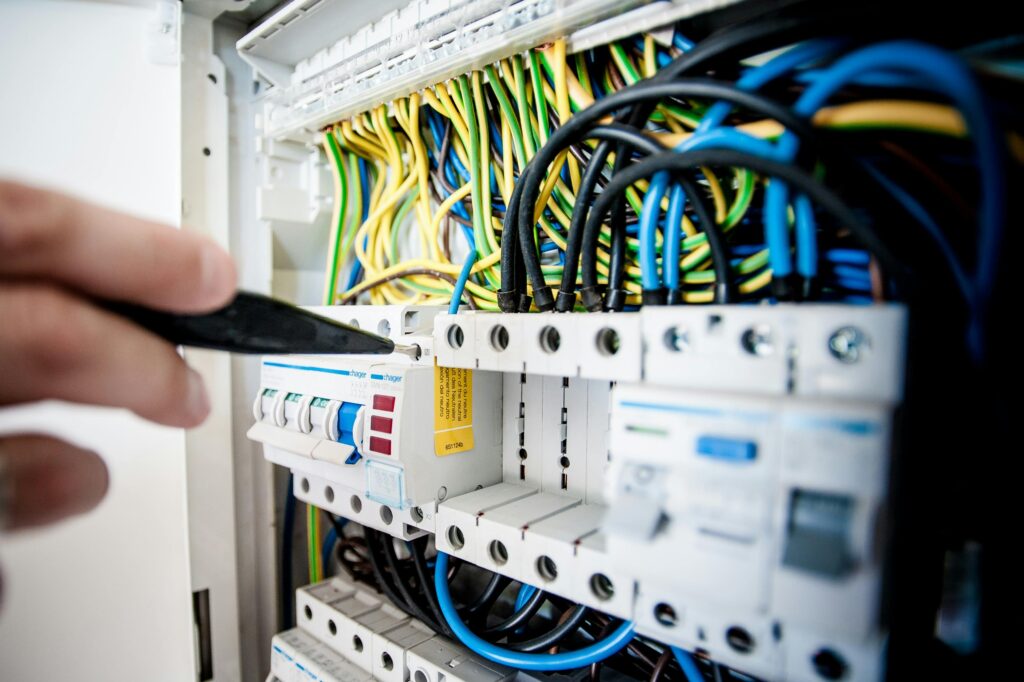
We often refer to 'getting an EICR', but what does this stand for and what does it actually mean?
What is an EICR?
An EICR is an inspection on the condition of an existing electrical installation which identifies in priority order any deficiencies against the national safety standard for electrical installations.
Many buyers and sellers believe this to be a vital component in the buying and selling process similar to the Property Information and Fittings and Contents forms but this is not correct. You don’t necessarily need to provide one as, at present, there is no legal requirement in the UK to obtain an EICR when selling your property. That said, many sellers feel that to provide such a report gives their buyer peace of mind and assurance that all is well and their future use of the electrical system carries no safety issues.
So an EICR can be useful to provide potential buyer confidence.
The report is likely to be appreciated by a buyer as they then know that all electrical installations and systems have been thoroughly checked by a registered electrician and deemed safe. For the seller’s part, you have assured the buyer about the quality of electrical system.
By providing the EICR you are ensuring that the electrical installations in your home are safe and compliant with the current BS 7671 wiring regulations.
By obtaining an EICR prior to agreeing a sale, you have the opportunity of resolving any issues, having any repairs undertaken safe in the knowledge that your buyer can’t then come to you and ask for a price reduction through some electrical want of repair.
In the absence of an EICR, a buyer may wish to employ their own electrician to undertake the test by accessing the property and with the buyer meeting the relevant fee. Should this then reveal electrical problems this could lead to price renegotiations, the demand for works to be undertaken at the seller’s cost (which of course takes time and will delay the sale) or in some cases a buyer pulls out of the purchase upon finding out the cost of any necessary repairs. Whatever happens, this will delay your sale.
If you have the EICR carried out in advance then you have ample opportunity to have issues rectified works done and, if need be, redecoration of damaged areas to be undertaken before a buyer is introduced.
How do I Organise an EICR and What Happens?
Should you decide that an upfront EICR is how you wish to proceed you will find the process to be relatively straightforward. A local registered electrician will carry out the check and this will involve a complete and thorough examination of:
• The electricity meter
• Major fittings like the fuse box, sockets, and lights
• Any visible or exposed wiring within the property
• Heating and safety equipment, like boilers, panel heaters, showers, and hard-wired smoke detectors
EICRs don’t consider appliances like white goods, kitchen and personal appliances, televisions, etc as those items are not fixed within the property and fall under the portable appliance test (PAT) requirements.
With a large property this inspection can take a few hours. Once completed the electrician then supplies a formal report detailing any ‘observations’ – which are issues that need attention. You will note those observations are coded from C1 to C3, with a C1 being the most serious and indicates there to be a danger present. C3 is the least serious and is a recommended improvement.
Conclusion
Although an EICR is not currently a legal requirement when selling a house in the UK you can see that it often becomes beneficial. Your buyer is reassured that the property complies with safety standards and gives you the chance to resolve or repair any unknown issues without delaying the conveyancing process.
The EICR comes with a cost and may flag issues that require rectification. As a seller it is worth considering the specific circumstances of your sale. If you live in an older property likely to have an outdated electrical system then to obtain an EICR is most advisable. In a newly constructed or recently updated home, it is less crucial.
As the EICR certificate is valid for a maximum of five years across the UK, if you wish to use the report with the contract pack for selling your home, clearly once you have paid for it you won’t have a further expense of getting another in the near future.
Next Steps...
If you have any questions regarding what is required when selling your home or if you would like a free conveyancing quote, contact us on freephone 0800 011 6666 or email us at legal@timms-law.com.




